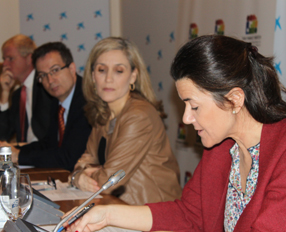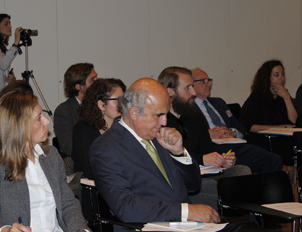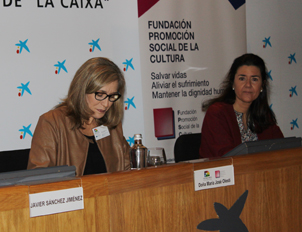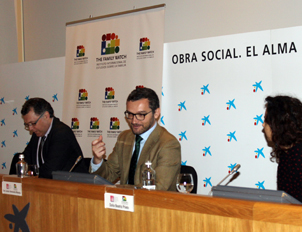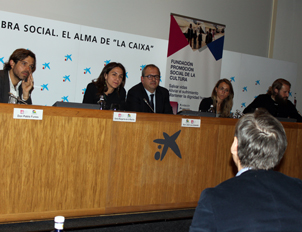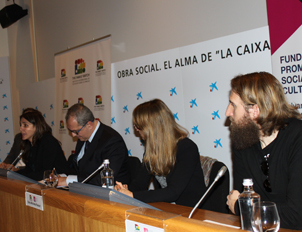The meeting, promoted by the FPSC and organized by The Family Watch, took place in Caixa Forum last April 14th.
The session has put the spotlight on the fundamental role that families have in the full integration and permanence of refugees who run from wars. All the speakers agreed on this issue.
The Managing Director of the Fundación Promoción Social de la Cultura, María Beamonte, has explained the interest that the Foundation had in promoting this meeting, “from our uninterrupted experience in the Middle East since 1992, and our work of Humanitarian Aid in Jordan, Lebanon and Syria, because of the Syrian conflict, we have realized the fundamental role that families have on the refugees situation and the need for deep knowledge of this fact and its implication in order to improve humanitarian actions on this area and contribute on its better knowledge in society”.
Thus, in the Academic Experts round-table, the Attorney of the Constitutional Court, José Miguel Sánchez Tomás, discussed the importance that must have “the legal framework on the treatment of refugees who run from wars and who, in many cases, have to do it with their families, this issue is not being discussed in Spain at the moment”.
Beatriz Prieto, jurist of the Italian entity Asilo in Europe, used the fostering of refugees in Sweden as an example. In her speech, Beatriz Prieto proposed as possible solutions: the family reunification in the countries of residence, as well as the realization of visas on humanitarian grounds or the creation of humanitarian corridors.
Participating in the social organization tables, were ACNUR, SAVE THE CHILDREN, SPANISH RED CROSS, ENTRECULTURAS. This round-table was moderated by José Luis Zatarain, Directorof Communication and Volunteering of the FPSC.
Michela Ranieri, Legal Analyst in Save The Children, introduced the importance of the “maintenance of the family unity trough the migration as the better measure to avoid cases of abuse and exploitation. Refugee children are suffering situations of genuine stress when being separated from their parents and that is something that should not be allowed.
Margarita de la Rasilla, RSD Officer and Legal Analyst in Acnur, said that “there is no doubt that family needs protection, and in the refugees area, it is essential to protect the families and to ensure their reunification” she also discussed “the lack of resources that they are currently suffering in the reception centre” that this organization has in Melilla.
Pablo Funes, Coordinator of Coorperation with Africa and Middle East in the organization Entreculturas, considers that it is fundamental “to transmit values when working with refugees. That means to have strong values and a desire to do the right thing”. He also talked about the initiative that they are promoting of families fostering families “as the better way to make refugees families being integrated until the administration provides them a home in the receiving country”.
José Zamora, Coordinator of the refugees project of the Red Cross in the Madrid Community, explained that the work this organization is doing in Madrid ” is made individually, case by case, and although this requires a lot of dedication, it also guarantees a full integration of refugees and their families”.





